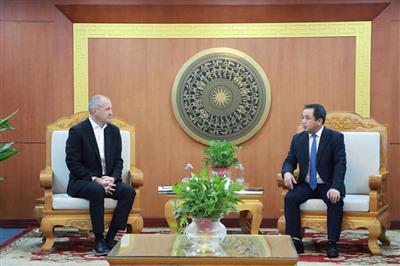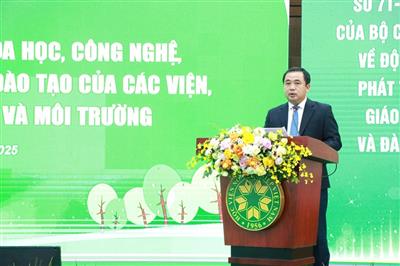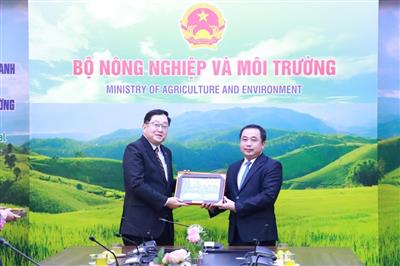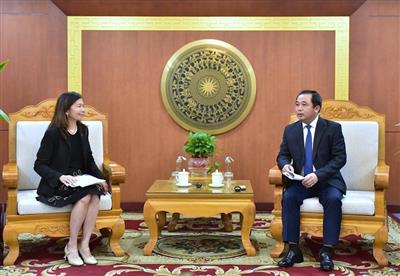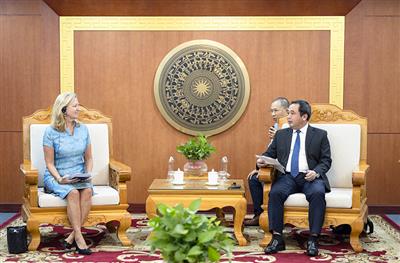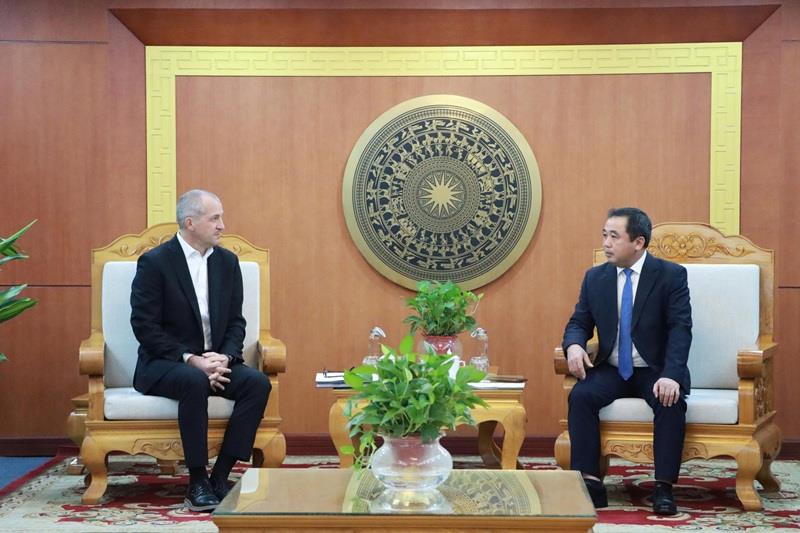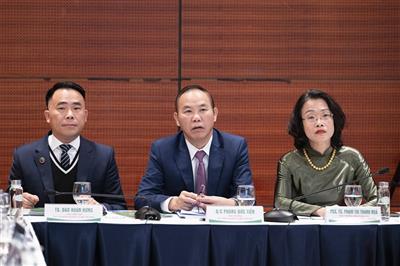
Circular economy model: Benefits for businesses and the environment
23/07/2025TN&MTOn July 22, 2025, the Agriculture and Environment Magazine under the Ministry of Agriculture and Environment hosted a scientific workshop titled “Circular economy model: Benefits for businesses and the environment” at the National Convention Center in Hanoi. The workshop gathered nearly 200 participants, including officials from ministries and agencies, policymakers, environmental experts, scientists, business leaders, OCOP enterprises, financial institutions, industry associations, and media representatives.
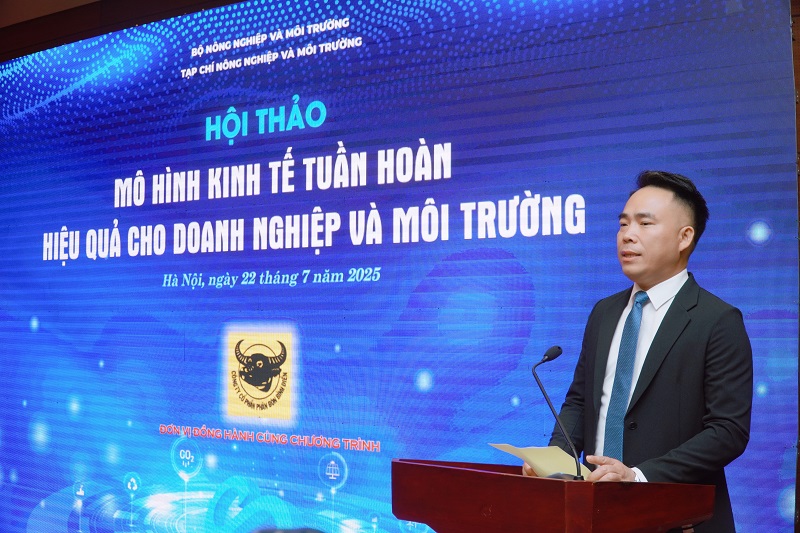
Dr. Dao Xuan Hung emphasized the central role of the circular economy in Vietnam’s green growth strategy
Attending the workshop were: Dr. Dao Xuan Hung, Editor-in-Chief of the Agriculture and Environment Magazine; Assoc. Prof. Dr. Nguyen Dinh Tho, Deputy Director of the Institute of Strategy and Policy on Agriculture and Environment; Assoc. Prof. Dr. Pham Van Loi, Deputy Director of the Vietnam Environmental and Marine Sciences Institute; Dr. Vu Van Doanh, Deputy Dean of the Faculty of Environment, Hanoi University of Natural Resources and Environment; MSc. Nguyen Thi Tra Giang, Institute for Strategic and Policy Research on Industry and Trade; Dr. Nguyen Trong Tuyen, representative of the Department of Livestock Production and Animal Health; Dr. Nguyen Dinh Trong, Chairman of the Board, T-TECH Vietnam Technology Group; Ms. Phan Thi Thuan, Director of the My Duc Silk Company Limited (OCOP Hanoi); Ms. Le Hang, Deputy Secretary General of the Vietnam Association of Seafood Exporters and Producers (VASEP); Ms. Do Thuy Tien, Deputy Director, Asahi Travel Vietnam; and Mr. Nguyen Tuan Viet, Deputy Head of the Non-concessional Credit Department, Vietnam Environment Protection Fund.
In his opening speech, Dr. Dao Xuan Hung emphasized the central role of the circular economy in Vietnam’s green growth strategy, while affirming the essential role of the media in raising public awareness and promoting practical action within the business community.
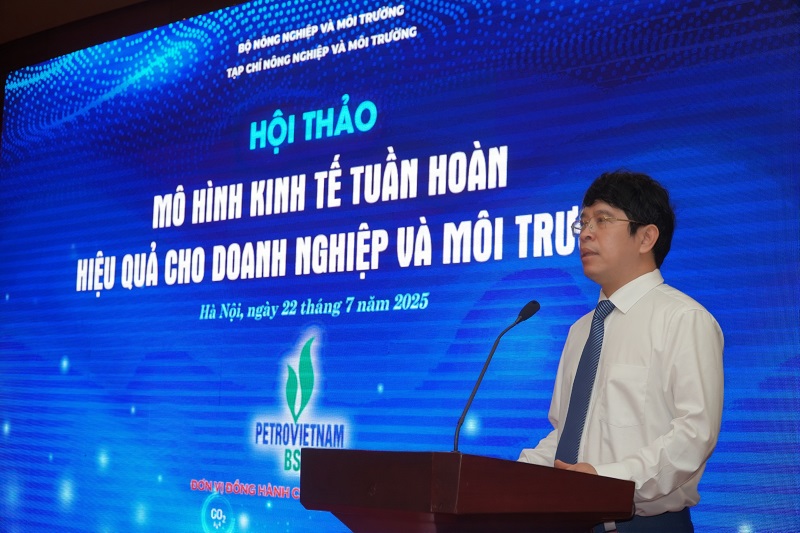
Assoc. Prof. Dr. Nguyen Dinh Tho emphasized that the circular economy is an essential pathway to address resource crises, promote green growth, and foster innovation. He noted that Vietnam must reform policies, develop green finance, and invest in recycling infrastructure to overcome current challenges
He said that the workshop was organized in alignment with the implementation of Resolution No. 68-NQ/TW of the Politburo, particularly the call to promote green credit, facilitate business access to investment in circular business models, and support projects aligned with ESG (Environmental, Social, and Governance) standards.
In addition, Dr. Dao Xuan Hung emphasized that the press should enhance the quality of communication, promote green business models and effective practices, and accompany enterprises in their transition toward more sustainable growth.
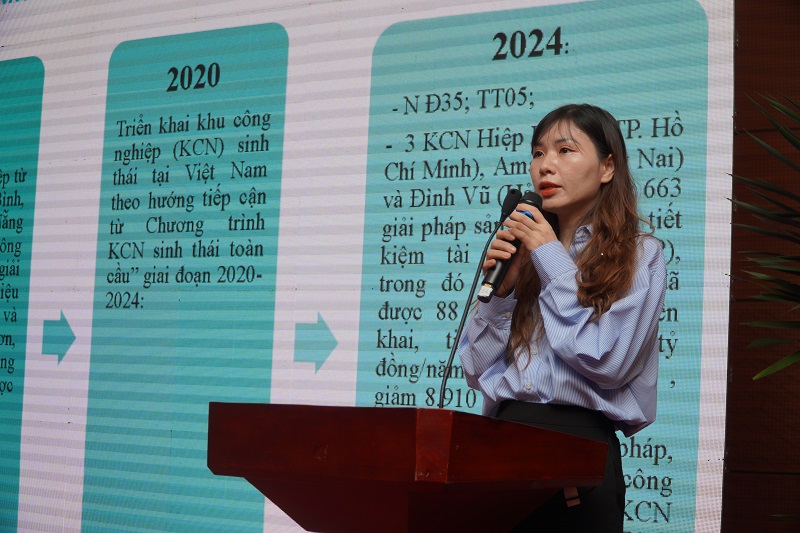
Despite initial progress since 2009, MSc. Nguyen Thi Tra Giang noted that Vietnam still faces institutional and legal barriers to scaling up EIPs, with low adoption rates and limited industrial symbiosis. She emphasized the need for comprehensive policies to expand, upgrade, and integrate EIPs within the national circular economy framework
In light of mounting global environmental challenges, such as climate change, resource depletion, biodiversity loss, and rising pollution, he stressed Vietnam’s need to transition toward a green, digital, and circular economy. For example, he noted that Vietnam generates roughly 70,000 tonnes of municipal solid waste per day, most of which is still treated by landfilling or incineration, causing waste and pollution. If properly sorted and recycled, this waste could become a valuable resource.
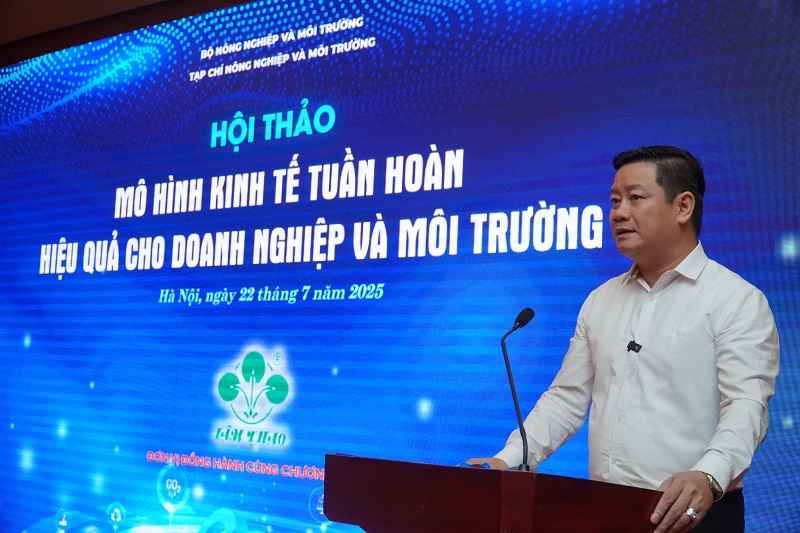
Dr. Nguyen Dinh Trong, Chairman of T-TECH Vietnam Technology Group, affirmed the company’s commitment to contributing resources, expertise, and technology to support circular economy development in Vietnam, stressing the need for concrete models, technologies, investors, and above all, enabling mechanisms for action
Dr. Dao Xuan Hung also acknowledged recent policy directions of the Ministry of Agriculture and Environment, particularly the promotion of Extended Producer Responsibility (EPR), support for green growth models in localities, and efforts toward a just energy transition (JETP). He emphasized that shifting toward circular business models not only saves resources and reduces costs but also enhances competitiveness, market access, and brand reputation.
The Agriculture and Environment Magazine, as a theoretical and communication platform of the Ministry, has expanded its role through bilingual (Vietnamese and English) publications and public forums, helping bridge policy, science, and enterprise in advancing the circular economy.
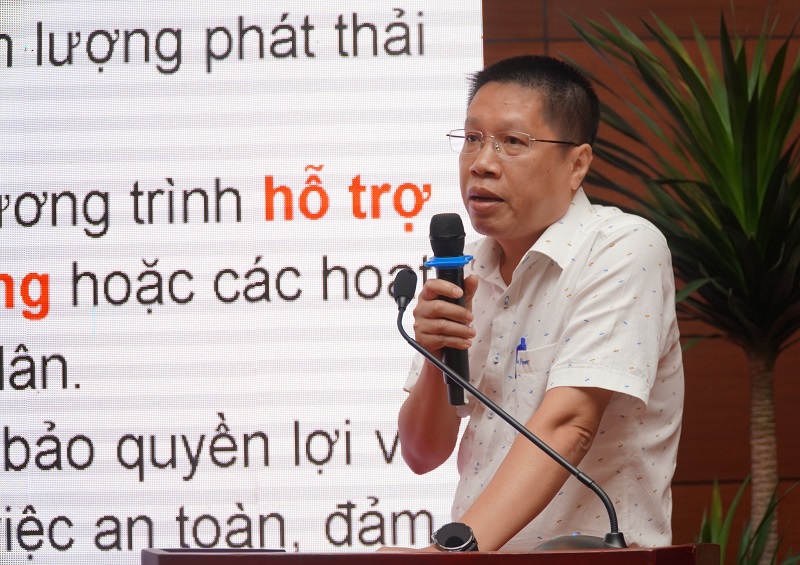
Dr. Vu Van Doanh emphasized that environmental protection is no longer the sole responsibility of state agencies but a shared duty of society. As key players in production, consumption, and innovation, businesses face growing pressure to reduce their environmental footprint and embrace sustainable practices aligned with circular economy and ESG principles
He expressed hope that the workshop would provide a platform for sharing innovative ideas, practical experiences, and policy recommendations for Vietnam’s green transition. He called for strong engagement from the government, the private sector, and civil society—three pillars essential for the successful and sustainable adoption of circular economy models.
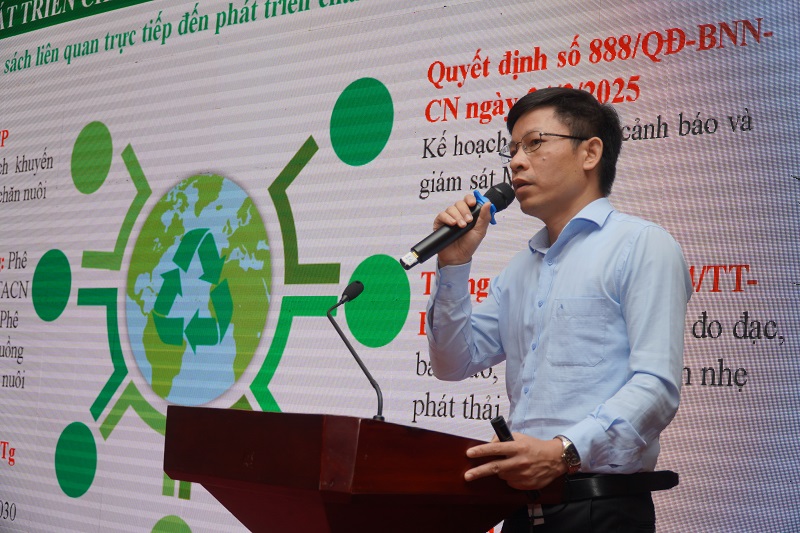
According to Dr. Nguyen Trong Tuyen, under the national scheme approved by Decision No. 540/QD-TTg dated June 19, 2024, by 2030, 60% of livestock households and 100% of farms are expected to apply waste treatment technologies for reuse, contributing to the broader goals of green and circular agriculture
The workshop featured in-depth presentations by scientists, policy experts, and business representatives on topics such as global trends and policies supporting circular economy, international experience, eco-industrial parks, recycling technologies, and green finance for SMEs. Key presentations included: “Circular economy: An inevitable trend and opportunities for Vietnam in the green era” by Assoc. Prof. Dr. Nguyen Dinh Tho; “The journey towards a circular economy: Practical experience from an OCOP enterprise” by Ms. Phan Thi Thuan; “Solutions for developing eco-industrial parks linked to the circular economy in Vietnam” by MSc. Nguyen Thi Tra Giang; “Technology solutions and services for circular economy: Market potential and implementation barriers” by Dr. Nguyen Dinh Trong; “Circular economy: A pathway to sustainable growth in the seafood sector” by Ms. Le Hang; “Environmental voices: The role of society and oversight in circular economy development” by Dr. Vu Van Doanh; “Developing livestock farming under a circular economy: A strategic approach to sustainable agriculture” by Dr. Nguyen Trong Tuyen; “Preferential credit mechanisms for circular economy and environmental protection” by Mr. Nguyen Tuan Viet; and “Applying circular economy models in Japan: Lessons for Vietnam” by Ms. Do Thuy Tien.
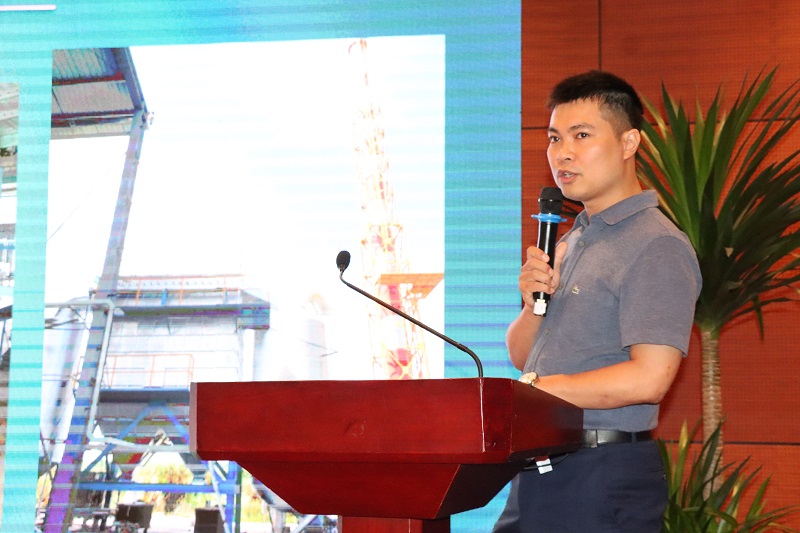
According to Mr. Nguyen Tuan Viet from Vietnam Environment Protection Fund, priority areas for concessional loans from the Vietnam Environment Protection Fund include: waste collection, treatment, recycling, and reuse; production of goods from recycled waste that meet legal quality standards; development of renewable energy such as solar, wind, and biomass power; and provision of waste treatment technologies combined with energy recovery
Vibrant discussions followed, with active contributions from delegates, entrepreneurs, students, and media representatives on topics such as green finance, technology solutions, preferential policies, corporate responsibility, and the role of the press.
The workshop concluded with a shared message: the successful transition to a circular economy requires close coordination among government, enterprises, and society. Supportive policies on access to green finance, adoption of clean technology, and promotion of corporate social responsibility are essential. Building circular value chains and greening growth models will enhance national competitiveness.
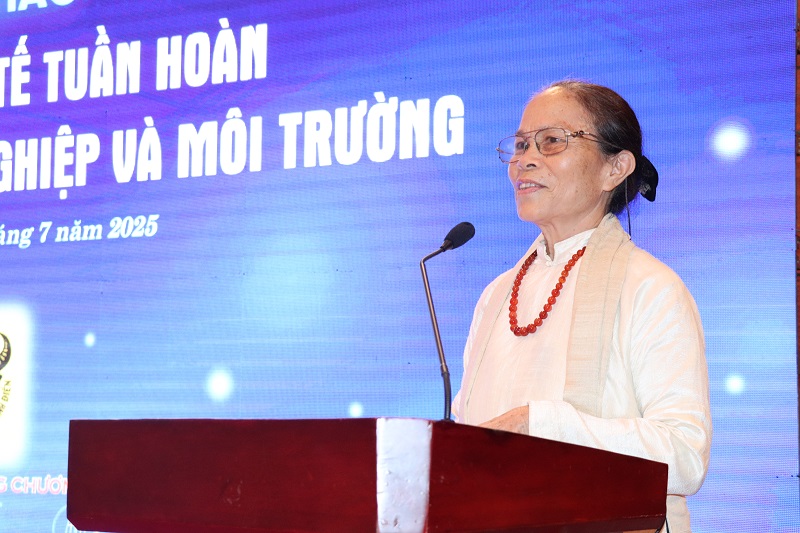
Meritorious Artisan Phan Thi Thuan has transformed silkworm and lotus waste into herbal medicine, bio-fertilizer, and mushroom inputs—generating over VND 500 million annually and cutting labor and energy costs through self-spinning silkworm technology
In his closing remarks, Assoc. Prof. Dr. Pham Van Loi noted that the workshop had been productive and comprehensive, addressing both theoretical frameworks and real-world practices of circular economy implementation in Vietnam.
He particularly appreciated the integration of practical case studies—from fisheries, livestock, and veterinary sectors to international examples such as Japan. The presentations highlighted existing technologies, the need for improved waste management capacity, and emerging technical requirements for more effective circular economy adoption.
The workshop also touched on governance mechanisms, enterprise and community responsibility, the importance of environmental protection funds, and financial instruments for supporting the circular economy. Speakers analyzed achievements, current bottlenecks, and proposed policy, technical, and infrastructure solutions for competent authorities.
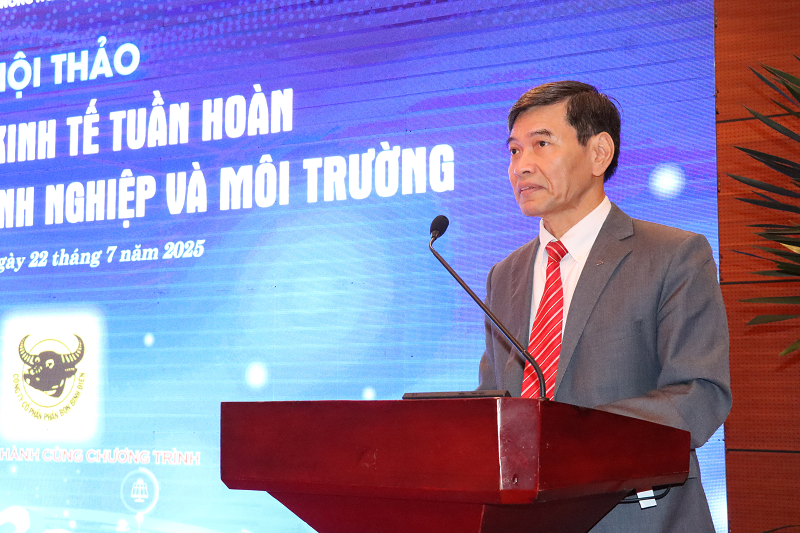
Assoc. Prof. Dr. Pham Van Loi stressed that while the circular economy is enshrined in Vietnam’s 2020 environmental law, businesses remain hesitant due to unclear short-term benefits—despite its proven long-term efficiency and cost savings
Assoc. Prof. Dr. Loi emphasized that the circular economy is now formally recognized in Vietnam’s 2020 Law on Environmental Protection (particularly Article 142) and has been detailed in subsequent policy documents. However, challenges remain.
One such challenge is that the benefits of circular models are not immediately apparent to businesses, leading to hesitance in investing. However, once in place, circular models reduce input costs by reusing waste, creating both environmental and long-term economic benefits.
He also highlighted the urgent need for effective source separation of waste and the development of supporting infrastructure. Additionally, further administrative reform is necessary to help businesses shift their production models and access available incentives more efficiently.
Concluding his remarks, Assoc. Prof. Dr. Loi affirmed that this workshop has laid a solid foundation of awareness—an important milestone as Vietnam works toward a low-emission, sustainable, and efficient future through the circular economy.
Hoang Anh - Viet Anh




